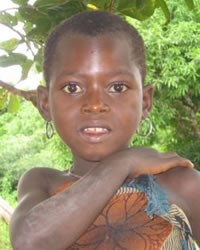Lolo in Mozambique

Photo Source:
Anonymous
|
Send Joshua Project a map of this people group.
|
| People Name: | Lolo |
| Country: | Mozambique |
| 10/40 Window: | No |
| Population: | 364,000 |
| World Population: | 364,000 |
| Primary Language: | Lolo |
| Primary Religion: | Ethnic Religions |
| Christian Adherents: | 35.00 % |
| Evangelicals: | 1.00 % |
| Scripture: | New Testament |
| Ministry Resources: | Yes |
| Jesus Film: | Yes |
| Audio Recordings: | No |
| People Cluster: | Bantu, Makua-Yao |
| Affinity Bloc: | Sub-Saharan Peoples |
| Progress Level: |
|
Introduction / History
They don't share the same language with ethnic groups in the same area. Theirs can be a dialect from Lomwe or Makhuwa and very close to Takwani. There are cultural traces and similarities with other groups but with differences in rituals and family customs. They differ basically only on the kind of local leadership (e.g. the "Regulo"-- the traditional local leader-- should be from the same ethnic group)
Where Are they Located?
They live in the west area of the Province of Zambezia, in the Morrumbala district and around Derre. There are quite well populated towns and villages in the area.
What Are Their Lives Like?
Their subsistence activities are agriculture, trading and fishing.
What Are Their Beliefs?
They are animists. There is a Christian minority represented by many denominations. Most denominations teach a works based salvation message. There is also a high syncretism between Christianity and animism. There is a kind of church far way from being considered as a genuine Christian Church. There is an influence of sect groups from Malawi that mix Christian beliefs with witchcraft practices.
What Are Their Needs?
The most basic need is for a clear understanding and faith in Jesus Christ for salvation in the existing churches. There is an openess the Bible not found in most of the unreached groups in the north of Mozambique. There are some small groups of Lolo believers that need to mature. There is a severe lack in understanding of why the Bible matters among women, especially younger women. There are also minor needs in the areas of clean water, health, education and sustainable development.